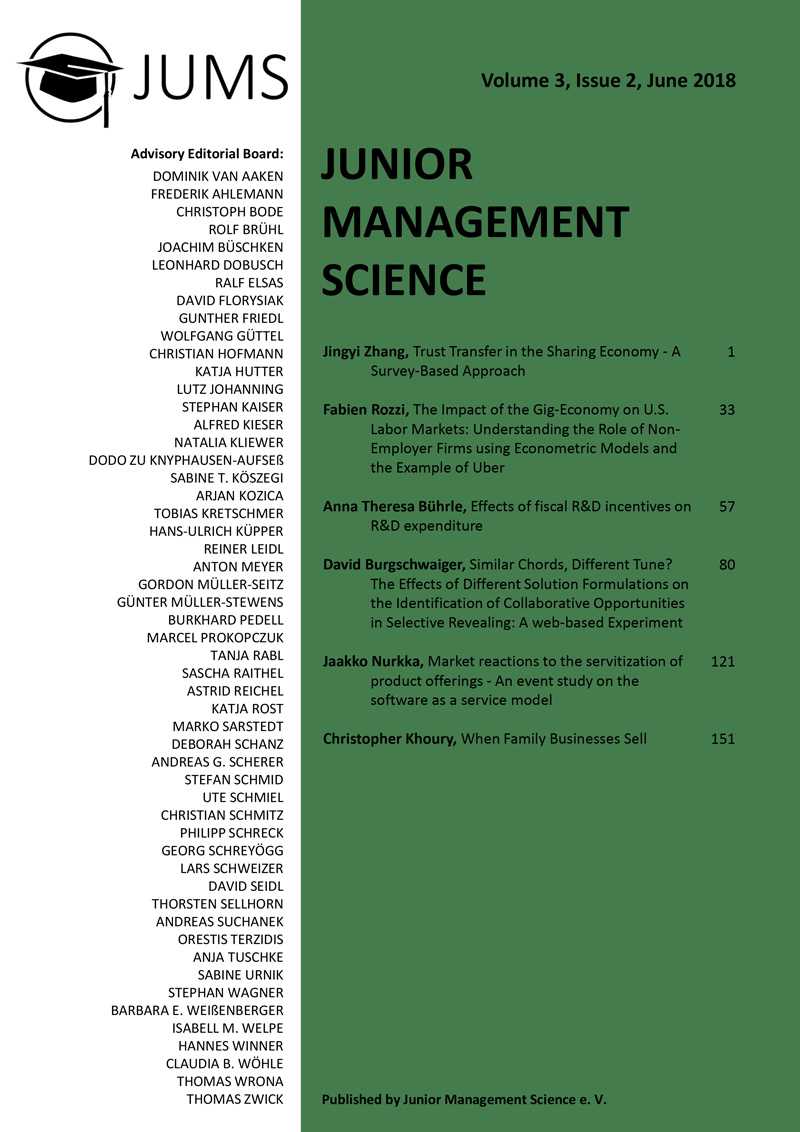Abstract
Family businesses favor the transition of ownership taking place within the family. However, the internal succession often fails, leading families to sell their businesses. Thus, in this thesis I aim to investigate the reasons of families for selling their businesses. I compare the perspectives of family owners and their potential successors to reveal their motives for selling the business to an external buyer. I put forward the proposition that the feasibility of a sale option is dependent on the potential sale scenario and the possible survival of the business to increase the sale inclination. My research is based on eight individual interviews with family owners and the next generation. Provided that those family businesses do not have specific internal succession thoughts, I exposed six different scenarios that have a positive or negative inclination towards selling the family business. Once the family owner or the next generation has established a sale intention a sale process is triggered. In my thesis I explore the sale terms that influence the negotiations during the sale process. My findings indicate that the survival of the firm has certain significance in the sale process. Families carefully examine the buyer, the acquisition price, and the anticipated durability in order to decide whether they complete a deal or discontinue the sale process with the particular buyer. With the discontinuance of the sale process, the intention to sell is still present, and the businesses reenter the sale process. Family businesses favor the transition of ownership taking place within the family. However, the internal succession often fails, leading families to sell their businesses. Thus, in this thesis I aim to investigate the reasons of families for selling their businesses. I compare the perspectives of family owners and their potential successors to reveal their motives for selling the business to an external buyer. I put forward the proposition that the feasibility of a sale option is dependent on the potential sale scenario and the possible survival of the business to increase the sale inclination. My research is based on eight individual interviews with family owners and the next generation. Provided that those family businesses do not have specific internal succession thoughts, I exposed six different scenarios that have a positive or negative inclination towards selling the family business. Once the family owner or the next generation has established a sale intention a sale process is triggered. In my thesis I explore the sale terms that influence the negotiations during the sale process. My findings indicate that the survival of the firm has certain significance in the sale process. Families carefully examine the buyer, the acquisition price, and the anticipated durability in order to decide whether they complete a deal or discontinue the sale process with the particular buyer. With the discontinuance of the sale process, the intention to sell is still present, and the businesses reenter the sale process.
Keywords: Family Business, Mergers and Acquisitions, Management Buy-out/in, Succession, Sales Process

